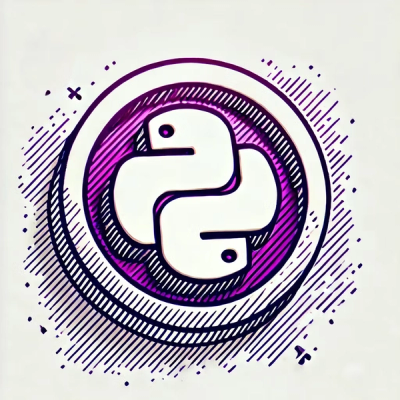
Research
npm Malware Targets Telegram Bot Developers with Persistent SSH Backdoors
Malicious npm packages posing as Telegram bot libraries install SSH backdoors and exfiltrate data from Linux developer machines.
Aiscalator is a toolbox to enable your team streamlining processes from innovation to productization with:
.. image:: _static/aiscalator_process.png :target: _static/aiscalator_process.png :align: center :alt: From Prototype to Production Workflow
Test if prerequisite softwares are installed:
.. code-block:: shell
docker --version
docker-compose --version
pip --version
Install AIscalator tool::
git clone https://github.com/Aiscalate/aiscalator.git
cd aiscalator/
make install
Great, we are now ready to use the AIscalator!
The following setup commands are completely optional because they are dealing with prebuilding Docker images. If you choose not to do it at this point, they will get built later on whenever they are required.
However, since producing a Docker image requires a certain amount of time to download, install packages, and sometimes even compiling them, these installation steps can be initiated right away all at once. Thus, you should be free to go enjoy a nice coffee break!
You might want to customize your environment with the AIscalator, this will ask you few questions::
aiscalator setup
Build docker images to run Jupyter environments::
aiscalator jupyter setup
Build docker image to run Airflow::
# aiscalator airflow setup <path-to-workspace-folder>
# for example,
aiscalator airflow setup $PWD
AIscalator commands dealing with jupyter are defining tasks in Airflow jargon; In our case, they are all wrapped inside a Docker container. We also refer to them as Steps.
Whereas AIscalator commands about airflow are made to author, schedule and monitor DAGs (Directed Acyclic Graphs). They define how a workflow is composed of multiple steps, their dependencies and execution times or triggers.
Create a new Jupyter notebook to work on, define corresponding AIscalator step::
# aiscalator jupyter new <path-to-store-new-files>
# For example,
aiscalator jupyter new project
# (CTRL + c to kill when done)
Or you can edit an existing AIscalator step::
# aiscalator jupyter edit <aiscalator step>
# For example, if you cloned the git repository:
aiscalator jupyter edit resources/example/example.conf
# (CTRL + c to kill when done)
Run the step without GUI::
# aiscalator jupyter run <aiscalator task>
# For example, if you cloned the git repository:
aiscalator jupyter run resources/example/example.conf
Start Airflow services::
aiscalator airflow start
Create a new AIscalator DAG, define the airflow job::
# aiscalator airflow new <path-to-store-new-files>
# For example,
aiscalator airflow new project
# (CTRL + c to kill when done)
Or you can edit an existing AIscalator DAG::
# aiscalator airflow edit <aiscalator DAG>
# For example, if you cloned the git repository:
aiscalator airflow edit resources/example/example.conf
# (CTRL + c to kill when done)
Schedule AIscalator DAG into local airflow dags folder::
# aiscalator airflow push <aiscalator DAG>
# For example, if you cloned the git repository:
aiscalator airflow push resources/example/example.conf
Stop Airflow services::
aiscalator airflow stop
FAQs
AIscalate your Jupyter Notebook Prototypes into Airflow Data Products
We found that aiscalator demonstrated a healthy version release cadence and project activity because the last version was released less than a year ago. It has 1 open source maintainer collaborating on the project.
Did you know?

Socket for GitHub automatically highlights issues in each pull request and monitors the health of all your open source dependencies. Discover the contents of your packages and block harmful activity before you install or update your dependencies.

Research
Malicious npm packages posing as Telegram bot libraries install SSH backdoors and exfiltrate data from Linux developer machines.

Security News
pip, PDM, pip-audit, and the packaging library are already adding support for Python’s new lock file format.

Product
Socket's Go support is now generally available, bringing automatic scanning and deep code analysis to all users with Go projects.